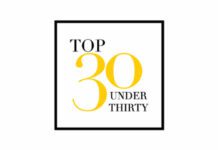Often an event happens that forces change. But the challenge is, many of us hate change. Depending on your personality type, you may be wired to crave routine, consistency and clarity, which is why the last two years have been so incredibly challenging.
I personally love uncertainty, and thrive on it, but I have found the last two years extremely difficult. Although many of us resist change, sometimes it propels us forward and forces us to make the changes that need to be made. Sometimes we’re forced to evolve in a way that allows us to give our people the positive change they want and deserve. Leadership in the hospitality industry has altered incredibly during the pandemic. Some leaders are stepping into this change and embracing it, some are wholly resisting it as they don’t agree with it, while others are still a little stuck trying to fully understand how things have changed.
I want you to ask yourself, when it comes to understanding and meeting the needs of your team, are you being tossed by the waves, are you paddling hard to improve your connection, engagement and retention of your people, or have you already made it out to calmer waters? Regardless where you are in this process, you have to remember it’s fluid. I have studied leadership as a coach in our industry for more than 15 years and identified patterns and changes that, if focused on, will drive positive change for leaders and their teams. Let’s get into it.
Building A Foundation of Trust
In times of extreme challenge and change, trust can start to waiver. During difficult times, people want to be led and the key to delivering your team what it wants and needs is to ensure that you have a foundation of trust. So, what does trust look like today for leaders and their people?
On teams with high trust, I almost always see leaders who consistently communicate with their teams. They are clear with their expectations and take the time to positively recognize their teams and their progress in the direction of their goals. They know engagement and positive change comes by focusing on positive momentum in the direction of their goals.
The other side is distrust and unfortunately, this is present in many teams based on the challenges of the pandemic. For every leader reading this, the pandemic and the impact it had on you, your operation and your people was not your fault, but is now your problem to solve. If we don’t, distrust will continue to spread throughout our teams. It often shows up when leaders are using “I” statements rather than “we” statements. Many teams are overworked and overcommitted and it’s a pattern — when the leader is setting up unachievable goals and timelines, it accelerates distrust — and happens when leaders are not taking the time to connect with their people on a personal level. It’s all work all the time, but life is still going on for your people, and if you don’t make them feel seen, valued and heard, it will create disconnection.
Connect through Consistent Communication
So many times, through the pandemic, and in recent months as we focus on re-building and re-bounding, I hear managers and staff say they don’t know the goals, vision and focus for the business. Too often leaders and staff are saying they don’t have much, if any, clear communication from leadership on the direction of the business.
The challenge is, when I ask the leaders of these teams if they have communicated vision, goals and focuses, they say they have. But even if you have communicated to your team, the stress test on communication in this case is not whether you have or haven’t, it’s ensuring your people have absorbed your communication to the level they can not only clearly communicate it back, but also know how to act to execute to achieve your goals.
Focusing on Communication Action Steps
Get Comfortable with Repetition: Your people will need you to share your message a minimum of seven times before they even truly hear it let alone are able to execute it. The more you repeat your core message, the more trust your team will have in your direction, and the clearer they will be on execution.
Commit to a Meeting Rhythm: 99 per cent of the time, managers need to be running effective meetings more often than they currently are. I recommend quarterly strategy workshops, monthly meetings, weekly team meetings and a daily check in at a minimum. If you want more info on how to set this up for your team, send me an email and I will share free resources.
Be More Coach-Like: Author of The Coaching Habit, Michale Bungay Stainer, shares the impact of a leader who focuses on being more coach-like. I highly recommend implementing a consistent frequency of 1:1 development conversations with your people. These are not management meetings; instead they are space and time to connect, listen and engage with your people.
So much has changed with respect to leadership as a result of the pandemic. Based on my experience working with hundreds of leaders over the last year alone, I encourage you to focus on these critical areas. If we have a focus on building trust and connection with our team, results will follow quickly. If we are brave enough to talk with our teams about what distrust looks like for them and how you can work together to improve it, trust and connection will grow with your people.
If we make a focused commitment to relentless and consistent communication, it will provide the connection and clarity your teams and people need to support you in achieving your vision and goals. It will also allow your people to see that their work, and your work as a team, is having an impact on what truly matters. This will have a massive impact on your culture and retention. In order for your people to change, what do you need to change? In order for your results to change, what do you need to change as a leader? I hope you give focusing on trust and consistent relentless communication a try for the next 90 days and share with me your results. If you want help or support in any of these areas, email me for free resources and support videos.
By Matt Rolfe. Matt Rolfe is a coach, speaker, bestselling author and entrepreneur. For support or more leadership insights, email [email protected]


















